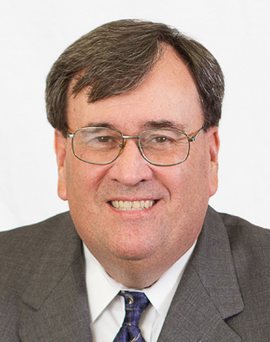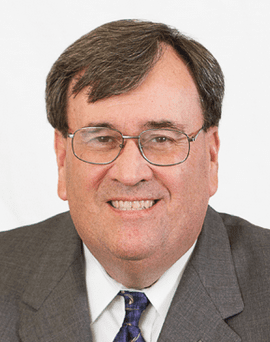“Do we unintentionally ignore the good will inherent in other faiths.”
 Dave Barringer, CEO of the St. Vincent de Paul Society, at the end of this reflection wonders whether “we unintentionally ignore the good will inherent in other faiths.” He is currently in Rome at the invitation of the US Bishops for a three day event with Buddhist and Catholic leaders. The dialogue will focus on (1) relational human suffering and its causes, (2) liberation from such suffering, and (3) the role of universal fraternity in contributing to this liberation in today’s society.
Dave Barringer, CEO of the St. Vincent de Paul Society, at the end of this reflection wonders whether “we unintentionally ignore the good will inherent in other faiths.” He is currently in Rome at the invitation of the US Bishops for a three day event with Buddhist and Catholic leaders. The dialogue will focus on (1) relational human suffering and its causes, (2) liberation from such suffering, and (3) the role of universal fraternity in contributing to this liberation in today’s society.
He is currently in Rome at the invitation of the US Bishops for a three day event with Buddhist and Catholic leaders. The dialogue will focus on (1) relational human suffering and its causes, (2) liberation from such suffering, and (3) the role of universal fraternity in contributing to this liberation in today’s society.
He writes from Rome…
As this issue of the E-Gazette is distributed I am in Rome on a special assignment at the request of the U.S. Conference of Catholic Bishops (USCCB). Early in his papacy, Pope Francis initiated a new form of
Early in his papacy, Pope Francis initiated a new form of interreligious dialogue called “Dialogue and Fraternity.” This dialogue seeks mutual understanding and appreciation as in the past, but also seeks to build fraternity, a sense of brotherhood/sisterhood, among persons of different religions in order to collaborate in addressing social problems. In the words of Pope Francis: “Fraternity is an essential human quality, for we are all relational beings. A lively awareness of our relatedness helps us to look upon and treat each person as a true sister or brother; without fraternity it is impossible to build a just society and a solid and lasting peace.”
This year Cardinal Tauran, president of the Vatican’s Pontifical Council for Interreligious Dialogue (PCID), wrote in his annual Vesakh message to Buddhists that such fraternal dialogue can lead to interreligious cooperation in order “to respect and defend our shared humanity….to be outspoken in denouncing all those social ills which damage fraternity, to be healers who enable others to grow in selfless generosity, and to be reconcilers who break down the walls of division and foster genuine brotherhood between individuals and groups in society.” Dialogue and Fraternity, therefore, seeks to address social ills, heal those who suffer from these ills, and reconcile divisions in society.
To this end, collaboration came about between the PCID, the USCCB, the Focolare, Monastic Interreligious Dialogue (MID), and Buddhist leaders in the United States in order to hold the first “Dialogue and Fraternity” event, in Rome from June 22 to 27. The conference site, the Mariapolis Center, is on the grounds of the Pope’s summer palace in Castel Gandolfo in the Alban Hills. Buddhist and Catholic leaders were invited from five large U.S. metropolitan areas (New York City, Washington, D.C., Chicago, Los Angeles, and San Francisco) who work in interreligious dialogue and/or social concerns.
Three people asked to attend are members of the Society of St. Vincent de Paul – David Fields (LA), Lorraine Moriarty (SF) and myself (DC and National). Three days of the event will entail dialogue about (1) relational human suffering and its causes, (2) liberation from such suffering, and (3) the role of universal fraternity in contributing to this liberation in today’s society. On one day, we will be special guests at a General Audience with Pope Francis, and will receive a VIP tour of the Vatican. On the final day, the Buddhists and Catholics participants will discuss how their communities might organize fraternal dialogue action groups to work together in addressing social ills in their locales.
Therefore, this encounter is historic in that it brings Buddhist and Catholic leaders from all across the United States (East Coast, Midwest, and West Coast) together to dialogue. They will dialogue about relational ills and the social problems they cause, and look for ways to speak out together against the injustices that cause so much suffering, and how to work together to heal and reconcile our broken world as brothers and sisters in the spirit of fraternity.
I look forward not only to learning more about Buddhist traditions but also more about my own Catholic faith from so many different perspectives all grounded in Catholic Social Teaching. If I was asked to construct an interfaith dialogue about US problems I don’t know that I would have begun with the Buddhists, or held the meetings outside of our own country. Those were not my decisions to make. Any interfaith conversation about social problems and solutions, anywhere, is a good place to begin.
President Sheila Gilbert and I agreed that since the invite came from the USCCB, we should honor it as part of our desire for close, positive relationships with all clergy and especially our Bishops across the nation. And as we all work to eliminate poverty in our systemic change and traditional Society services with so many people from so many backgrounds, we hope to gain understanding and perhaps even new resources to help us as we serve others.
I wonder sometimes if we spend so much time, locally and nationally, talking with other Catholics that we unintentionally ignore the good will inherent in other faiths. They may not have the ultimate blessing of Christ in their lives, but they still have goodness in their hearts. To solve poverty, we need all the friends we can find!
Yours in Christ,







Interestingly, in his column, “A small c catholic” (NCRonline), Presbyterian Bill Tammeus presents Dietrich Bonhoeffer as a model for engaging with a faith different from one’s own.
Tammeus says, “What I have not known but learned by reading Keith Clements’ new book, Dietrich Bonhoeffer’s Ecumenical Quest, was how important Catholicism was in shaping his view of the church universal and indeed, his own theology.”